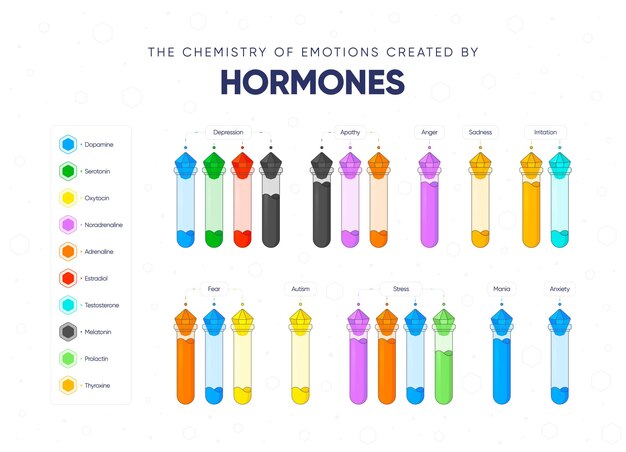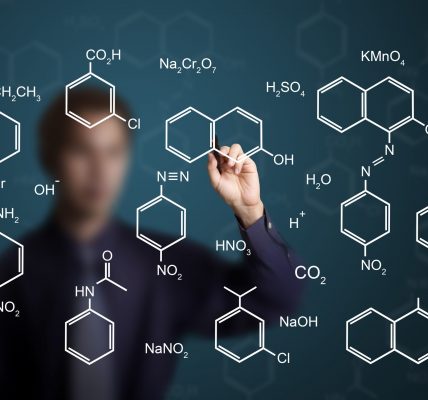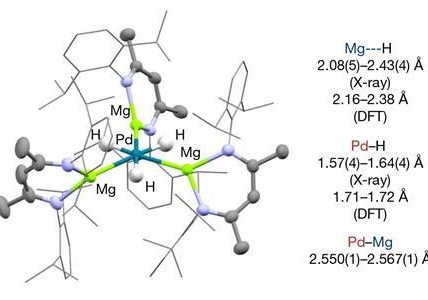Emotions, the driving force behind our experiences, are not solely a product of our thoughts. They are profoundly influenced by a complex interplay of chemicals in our brain known as neurotransmitters. This article aims to unravel the intricate relationship between neurotransmitters and emotions, shedding light on the fascinating world of emotional chemistry.
**1. Neurotransmitters: The Chemical Messengers
Neurotransmitters are chemical compounds that facilitate communication between nerve cells, or neurons, in the brain. They play a pivotal role in regulating various bodily functions, including emotions, by transmitting signals across neural synapses.
**2. Dopamine: The Pleasure Pathway
Dopamine, often referred to as the “feel-good” neurotransmitter, is associated with pleasure, reward, and motivation. It plays a crucial role in experiences of enjoyment, reinforcement learning, and the anticipation of rewards.
**3. Serotonin: The Mood Regulator
Serotonin is a neurotransmitter closely tied to mood regulation and emotional well-being. It helps stabilize mood, promotes feelings of contentment and happiness, and plays a role in managing anxiety and depression.
**4. Norepinephrine: The Arousal Agent
Norepinephrine, sometimes called noradrenaline, is involved in the body’s stress response. It heightens alertness, attention, and arousal, preparing the body to react to potentially threatening situations.
**5. Oxytocin: The Bonding Hormone
Oxytocin, often dubbed the “love hormone” or “bonding hormone,” is instrumental in social interactions and bonding. It is released during activities like hugging, cuddling, and socializing, fostering trust and connection.
**6. GABA and Glutamate: The Balancers of Excitability
GABA (gamma-aminobutyric acid) and glutamate work in tandem to regulate the excitability of neurons. GABA acts as an inhibitory neurotransmitter, calming neural activity, while glutamate is excitatory, stimulating brain function.
**7. Endorphins: The Natural Painkillers
Endorphins are the body’s natural painkillers and mood elevators. They are released during activities like exercise, laughter, and certain foods, contributing to feelings of pleasure and reducing pain perception.
**8. Cortisol: The Stress Hormone
While not a traditional neurotransmitter, cortisol, a hormone released in response to stress, influences brain function and plays a significant role in emotional responses to challenging situations.
**9. Emotional Regulation and Brain Chemistry
The delicate balance of neurotransmitters is crucial for emotional regulation. Imbalances or disruptions in neurotransmitter levels can lead to mood disorders such as depression, anxiety, and bipolar disorder.
**10. Neurotransmitter Imbalances and Mental Health
An imbalance in neurotransmitter levels can significantly impact mental health. Understanding these imbalances allows for targeted treatments, such as medication or therapy, to restore equilibrium and alleviate symptoms.
**11. Factors Influencing Neurotransmitter Levels
Several factors, including genetics, diet, lifestyle, and environmental stimuli, can influence neurotransmitter levels. Understanding these factors empowers individuals to make choices that promote emotional well-being.
**12. The Complexity of Emotional Responses
Emotions are not simply products of our thoughts or experiences; they are intricately tied to the chemical processes within our brains. Recognizing the role of neurotransmitters provides a deeper understanding of the complexity of our emotional danatoto responses.
Conclusion: Decoding the Language of Emotions
The interplay between neurotransmitters and emotions is a testament to the incredible complexity of the human brain. By delving into this intricate relationship, we gain insights into the underlying mechanisms that shape our feelings and responses. Understanding the chemical language of emotions paves the way for more effective approaches to emotional well-being and mental health.











